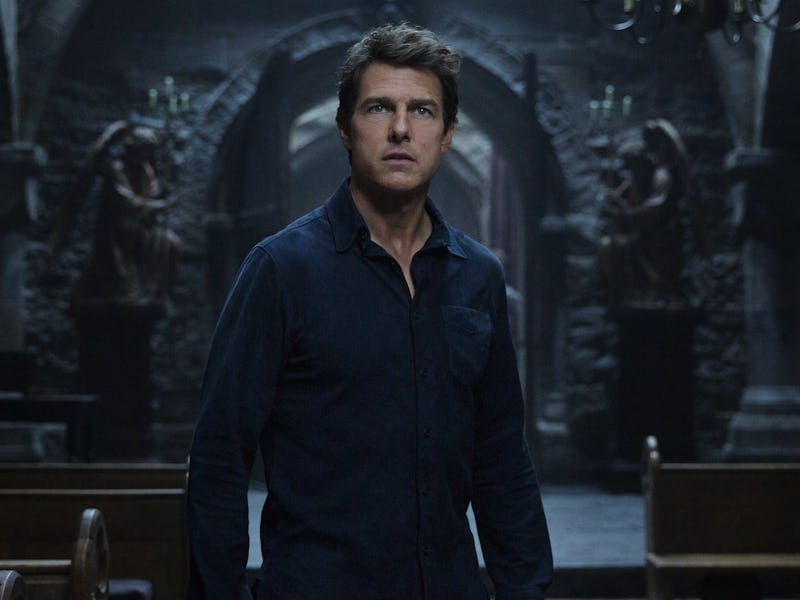I’m Still Mad About The Mummy’s Wasted Potential
Seven years after the birth (and swift demise) of Universal’s Dark Universe, here’s how it all went wrong.

“It takes a monster to defeat a monster,” explains Dr. Henry Jekyll (Russell Crowe), one of the bigger surprises of The Mummy. Jekyll and his alter ego, Mr. Hyde, are only briefly teased in the 2017 film, but Crowe’s dual performance is among the most thrilling parts of it. That’s a credit to Crowe, but also an admonishment of The Mummy’s failure. Crowe was always going to be great, but was he really meant to run away with a movie about a different monster?
Jekyll’s introduction was meant to build Universal’s then-new cinematic universe. Named the Dark Universe, the franchise would have taken a page from Marvel to create an interconnected saga of films. Universal had a slew of stories planned, each starring big names, before The Mummy had even seen the light of day. The studio’s ideas sounded pretty good, too: Javier Bardem would appear as the Wolf Man, and Russell Crowe’s Jekyll would eventually get his own film. Even Sofia Boutella’s undead Egyptian princess felt like an inspired step in a more modern direction.
Unfortunately, The Mummy wasn’t strong enough to shoulder the many demands of the Dark Universe. Years after its failure, it still feels like a wasted opportunity, because it downplayed the monster it tried to start a franchise with.
It’s been seven years since we witnessed “the beginning of the Dark Universe,” and about seven years and five minutes since the saga ended.
Universal’s classic monsters have been remixed and modernized time and again, but never as effortlessly as the Mummy. The property already inspired a beloved noughties reboot, but with the Dark Universe’s 2017 effort, producers like Alex Kurtzman were keen to take a monster-first approach.
“The monsters are defined by the audience’s ability to fear them and empathize with them,” Kurtzman told Inverse in 2017. He cited the Bride of Frankenstein, who barely played a role in her own film, as an example of the Dark Universe’s potential. “What we have to do is harness the spirit of the choice she made, and imbue that character in the bride and give her her own story.”
Boutella’s Princess Ahmanet should have been the first character to get that treatment, and The Mummy did come close to centering the story around its monster. Ahmanet’s backstory is tediously hashed out over a breathless montage: she makes a sinister deal with the Egyptian god Set, but was banished for her crimes. But her motivations are frustratingly unclear, as The Mummy is far less interested in Ahmanet than it is in its smarmy antihero, played by Tom Cruise.
Sofia Boutella’s sidelining wasn’t the biggest sin in The Mummy, but it revealed Universal’s misguided enthusiasm.
The film tried to recreate the magic of the 1999 incarnation with Cruise’s Nick Morton, splicing his affinity for treasure-plundering with a Marvel-esque introduction of Jekyll and Hyde. Notably, it's Jekyll, not Ahmanet, who gets the most fulfilling story. The Mummy’s resurrection and short-lived reign of terror are little more than set-dressing, which makes for a colossal waste of Boutella’s potential. The Dark Universe was meant to be a showcase for its monsters and the actors playing them, but The Mummy couldn’t even cede the spotlight to its own title character.
As frustrating as The Mummy’s failure remains, Universal seems to have learned from it. It likely won’t be the last time a female character is overshadowed in her own film, but as the Dark Universe gives way to a looser, filmmaker-focused approach, maybe other monsters will fare better in the future.